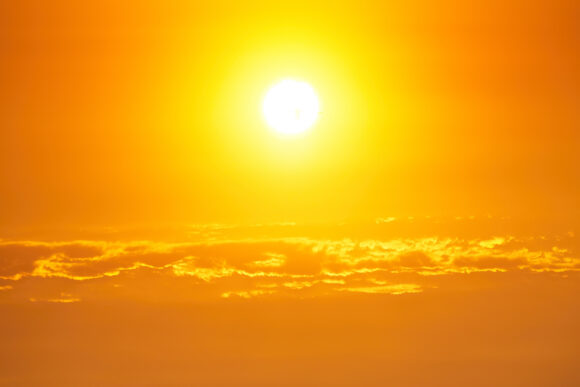 Rutgers-led report details 2022 climate trends for state and local leaders
Rutgers-led report details 2022 climate trends for state and local leaders
New Jersey’s summer of 2022, with the warmest August on record and the lowest rainfall levels seen in more than 50 years, offers a glimpse into how climate change may affect future summers in the Garden State, according to a new report being released by researchers from Rutgers and the Office of the New Jersey State Climatologist.
The report, entitled “State of the Climate: New Jersey 2022,” illustrates the unique challenges global climate change presents to residents of the state and details specific New Jersey climate trends while synthesizing analyses and projections from across the climate change field.
“Climate change has increased temperature extremes, sea level and rainfall intensity within New Jersey,” said James Shope, an applied climatologist with the New Jersey Climate Change Resource Center at Rutgers and an author on the study. “These changes will continue.”
Shope said the yearly report provides an updated resource for how climate change hazards can affect human health, ecosystems and agricultural production in New Jersey.
“Summer 2022 was the third warmest summer on record in New Jersey,” said David Robinson, a Distinguished Professor at Rutgers, the state climatologist and a coauthor on the study. “Our annual temperatures have increased by about 4 degrees Fahrenheit since 1900, roughly twice the global average.”
By the end of this century, with lower levels of greenhouse gas emissions, annual temperatures are projected to increase by as much as another 4 to 5 degrees Fahrenheit, according to the report. With higher emissions, annual temperatures will increase by as much as another 9 to 10 degrees Fahrenheit, increasing the likelihood of heat waves and heat-related illness for New Jersey’s citizens.
As projected summer temperatures throughout the northeast U.S. are expected to increase and summer rainfall to remain relatively unchanged, the frequency and magnitude of future summer drought conditions is likely to increase, the scientists said. These episodes could cause fluctuations in water resources that affect agricultural production and promote higher wildfire risk.
The report pointed to other coming changes. Sea levels have risen by about 1.5 feet in Atlantic City since the early 1900s. By 2100 with moderate greenhouse gas emissions, sea levels are projected to rise between 2.0 and 5.1 feet compared to the year 2000 baseline. As a result, residents, by 2100 will experience more destructive coastal storms and increasing numbers of “sunny day” flooding in tidal areas most of the year during high tides, even with moderate greenhouse gas emissions.
The record-high temperatures and dry conditions of summer 2022 led to reduced water present in soils, which in turn caused reduced yields for crops such as corn and soybeans. Groundwater and surface water levels also fell, with levels in the Delaware River and many reservoirs much lower than in 2021.
The report was led by the Rutgers New Jersey Climate Change Resource Center in partnership with the Rutgers Climate Institute and the Office of the New Jersey State Climatologist, with support from the New Jersey Agricultural Experiment Station.
The New Jersey Climate Change Resource Center was created by statute in 2020 to address climate change issues in the state by providing actionable science, planning tools and technical guidance to policymakers, practitioners and communities.

